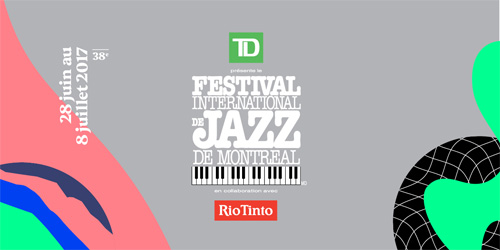The Montreal International Jazz Festival, now in its 39th year, is regarded as the world’s largest jazz festival. The music line-up includes ambassadors of jazz and blues – as well as a generous dose of artistes in world music and fusion. See my writeup from the previous editions of MIJF (2016, 2015); fans of jazz and world music can check out my app ‘Oktav’ as well, a collection of witty quotes about music (available on Apple iTunes and Android).
The 2017 edition of MIJF featured artistes from Canada, USA, Mexico, Spain, Brazil, Yemen, Morocco, Algeria, Congo, Haiti, Cuba, Puerto Rico, Nigeria, Cameron, Guadeloupe and Switzerland. An estimated two million attendees flocked to the stages, spread over 10 days and two dozen venues. The long summer days of late June and early July made for perfect outdoor performances, along with ticketed indoor events.
Check out some of the highlights in this photo tour of MIJF 2017, and make sure you attend the 2018 edition!

Flavia Coelho from Brazil played for the first time at MIJF, and featured tracks from her third album, Sonho Real. Funk, forro, ragga, ska and dub fused together in a high-energy set at the indoor venue Club Soda.

Bixiga70 was another outstanding band from Brazil at MIJF. The Sao Paulo collective featured ten musicians with a combination of Afrobeat, Ethio-jazz and funk.

Gypsophilia played a joyous set of gypsy jazz blended with funk and Latin rhythms. Anchored by Adam Fines, the septet from Halifax kicked off a fine evening of music at the outdoor Club Jazz Casino stage.

Gypsy Sound System featured a broad range of gypsy music anchored by Swiss couple DJ Olga and Dr. Schnaps. The music blended Slavic salsa, electronica, and brass. The group drew loud applause for their energetic set and sheer musicianship.

The Django Festival Allstars paid tribute to the legendary gypsy guitarist Django Reinhardt. Featured artistes included Samson Schmitt, Ludovic Beier and Pierre Blanchard. Their indoor set at the Gesu venue transported gypsy swing into the 21st century.

Rosalía Refree is an outstanding vocalist from Barcelona, and was accompanied by Raül Refree on guitar for a soaring set of neo-flamenco. The youthful duo played tracks from their recent album, Los Angeles.


The Gipsy Kings, celebrated masters of flamenco, salsa, and pop fusion, have been on tour for over 25 years and show no signs of stopping. Their booming vocals and guitars had the audience on their feet clamoring for more, as the band played classic hits as well as new tracks from their album Savor Flamenco.

A-Wa was another astonishing band at MIJF, featuring three sisters from Israel: Tair, Liron and Tagel Haim. Their music featured Yemenite vocals, hip hop and electronica rhythms. Their hits include Habib Galbi (Love of My Heart).

Gabacho Maroc had an unusual lineup of eight French, Moroccan and Algerian musicians. The stage was filled with bendirs, drums, keyboards, darbukas, and jembes. The creative set fused gnawa, Afro, berber, trance, jazz and electronica, breaking new frontiers in world music and jazz.

Djmawi Africa brought a touch of Algeria to jazz, and the eight-member troupe blended gnawa, rai and reggae in their phenomenal one-hour outdoor set. The music crossed new domains of North African sound, particularly appreciated in an era of growing cross-border hostility.

Coyote Bill is a Montreal collective blending Afro-beat, jazz, funk and reggae. Their incendiary set was a perfect closing act in the indoor Metropolis venue, with hybrid beats and energetic horns.

Jazzamboka is a Montreal quintet powered by two Congolese percussionists. It brings to urban audiences the spirit of African village music (yamboka means village in Lingala, a Bantu language). Funk, rock, be-bop, soukous, and electronica brought the sounds of Central Africa to new frontiers in this outdoor set.

Afrikana Soul Sister were closing acts on two nights of MIJF 2017, with a high-powered set of electro-house. Artistes include Jean-François Lemieux on bass, Joanie Labelle and Fa Cissokho on percussion, and Djely Tapa on vocals. The quartet blended house with African musical roots, and played tracks from their latest album Mayébo.

Bokante played a spirited set of Caribbean and African music blended with jazz, thanks to the influences of Michael League (bassist-composer of Snarky Puppy) and vocalist Malika Tirolien. Malika is from Guadeloupe and is now based in Montreal. The high-energy performance drew loud applause for the percussion and vocal-bass duet with Malika and Michael.

Just Wôan is a bassist-vocalist from Cameroon, and delivered a set of jazz blended with Afro-groove. He was born in Yaunde and already has three albums to his credit. He sings in French, Bassa, Duala, and Ewondo or Creole.

Huu Bac Quintet featured a range of instruments from Vietnam and China such as dan bau (Vietnamese monocord), erhu (Chinese fiddle), and even the quena (Andean bamboo flute). Multi-instrumentalist Huu Bac did a great job of blending Asian sound with North American jazz.

Fwonte is a Haitian-born Montreal artist who blends tropical rhythms with electronica. Caribbean sounds were reinterpreted for the digital age in his one-hour set.

Ife is a collective from Puerto Rico playing ‘live electronic music’ without remixes and computers. Their indoor set celebrated Yoruba cult music and explored new frontiers in fusion.

The Villalobos Brothers featured three brothers originally from Mexico and currently based in the US. The violinists, singers, songwriters and arrangers were all over the stage in their high-energy set, and reinterpreted original folk compositions with jazz and classical music.
Author: Madanmohan Rao
Madanmohan Rao is an author and media consultant from Bangalore, and global correspondent for world music and jazz for World Music Central and Jazzuality. He has written over 15 books on media, management and culture, and is research director for YourStory Media. Madan was formerly World Music Editor at Rave magazine and RJ at WorldSpace, and can be followed on Twitter at @MadanRao.


